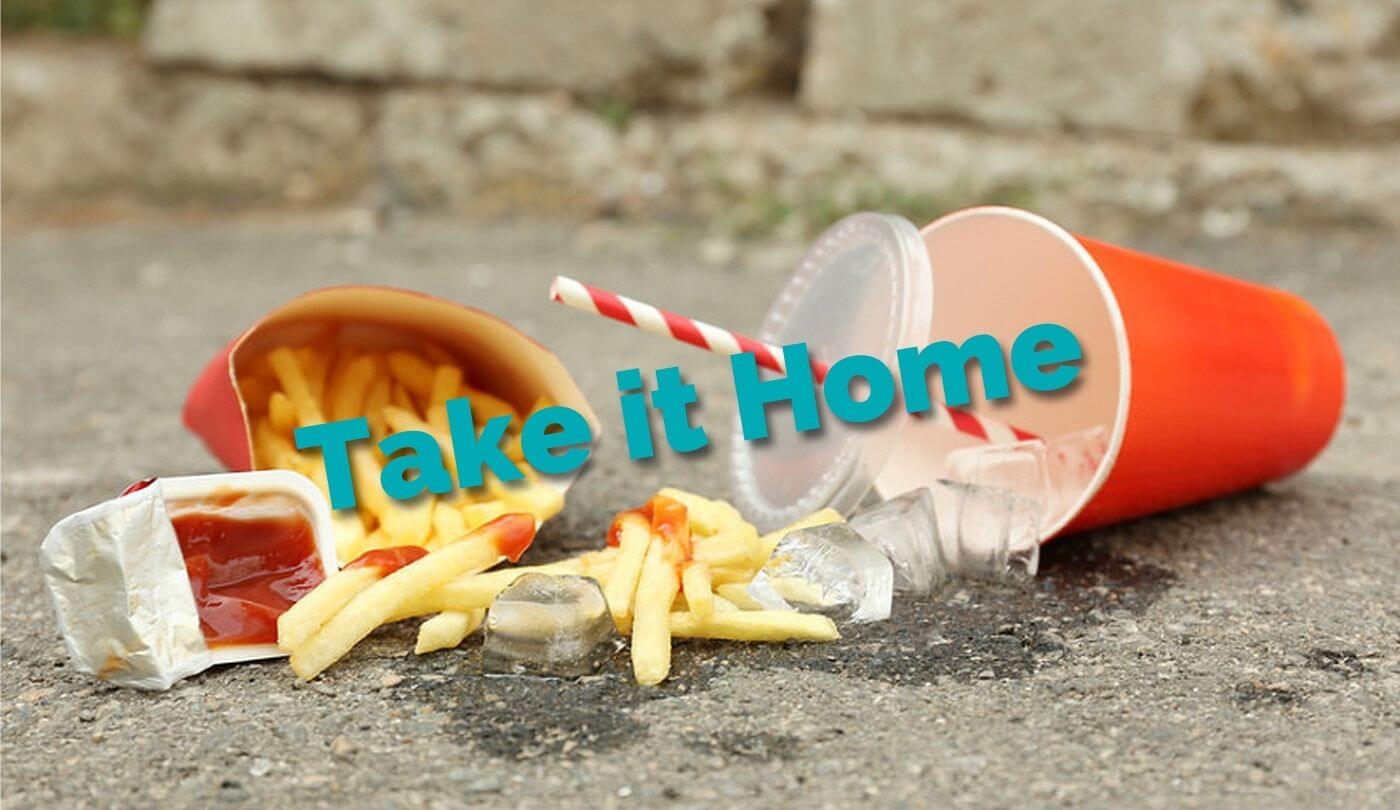
Fewer public bins, more individual responsibility. Could a solution to the amount of rubbish in our parks and waterways be just, “Take it home!”
Bit by bit, the world is walking back some of the downsides which the commercial imperative of “convenience” has wrought on so many aspects of the way we live in cities.
- Plastic shopping bags – gone. There were cries that they could not be done without, but experience has shown that there is a myriad of solutions to that slight inconvenience, all of them known to our grandparents.
- Styrofoam cups and containers – almost gone. Cardboard is largely replacing them; who would have thought it possible.
- Single-use plastic items – going by 2025. That includes plastic straws, drink stirrers, produce bags, tableware (e.g. plastic plates, bowls, cutlery) and non-compostable fruit stickers.
So there is progress, but it is slow. Perhaps it will accelerate as we collectively recognise the issue of plastic in our environment, particularly in our waterways. Let us hope so and do all we can to make it so.
Reuse is an important motivator in reducing litter. Most people would not consider leaving their picnic blanket behind on the ground in a park because it has such obvious reuse value. You would think that a similar principle would equally apply to an empty bottle, but for many people, it apparently does not. When bottles had a reclaim value they were much more likely to be retained; let us join the chorus for the return of such bottle reclaim schemes for both glass and plastic. Even if the original purchaser does not retain the bottle to collect the refund, there will be others quick to collect for their own gain.
Much of the issue of litter is a psychological one; what to do with an item that you have finished with using and which is now an inconvenience to you – a piece of wrapping, a pizza box, the fish & chips wrapper, a plastic bag of dog poo. Due to the negative associations with these sorts of items, the psychological imperative is to be rid of them as soon as possible. This is a hard issue to tackle.
The notion of public rubbish bins appears to be an attractive and simple solution. Until, that is, one understands the costs and logistics of continuously servicing these bins, the lack of sorting of recyclable from other rubbish, and the issue of wind, rodents and birds attacking bins. There is also the impossibility of providing sufficient numbers of bins in the correct locations to maximise the effect. Witness the furore that broke out when the Christchurch City Council recently removed 800 public bins from parks and replaced them with just 81 larger capacity bins.
There really are only two answers to the issue of litter and waste:
- create as little as possible in the first place, and,
- if you have created waste, take responsibility for it, preferably by taking it home and placing it in your own bin provided by the City Council for just that purpose.
The city provides, at no little cost to individual ratepayers, a recycling and rubbish removal system that is increasingly sophisticated. We just need everyone to utilise it properly for all their rubbish and recycling, which includes the waste that having a takeaway or picnic or pet creates when you are not at home.
Just as we have acclimatised to the notion of no plastic shopping bags, we can change our thinking to accept the idea that we take all our rubbish home even if that means carrying or transporting it there. We have done it in national parks. We have done it with plastic shopping bags. It is more than possible – it is critical.
This will be one more way in which city-dwellers, in particular, can do their bit to reduce waste entering our waterways and ultimately, the sea. It will not, however, eliminate all litter: we will all need to continue to pick it up where we find it.
